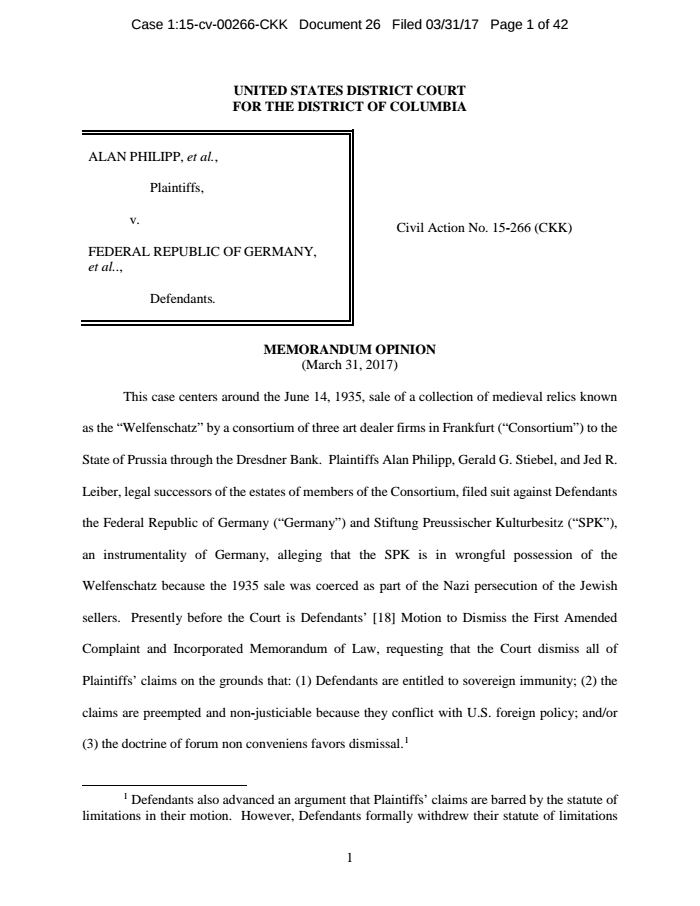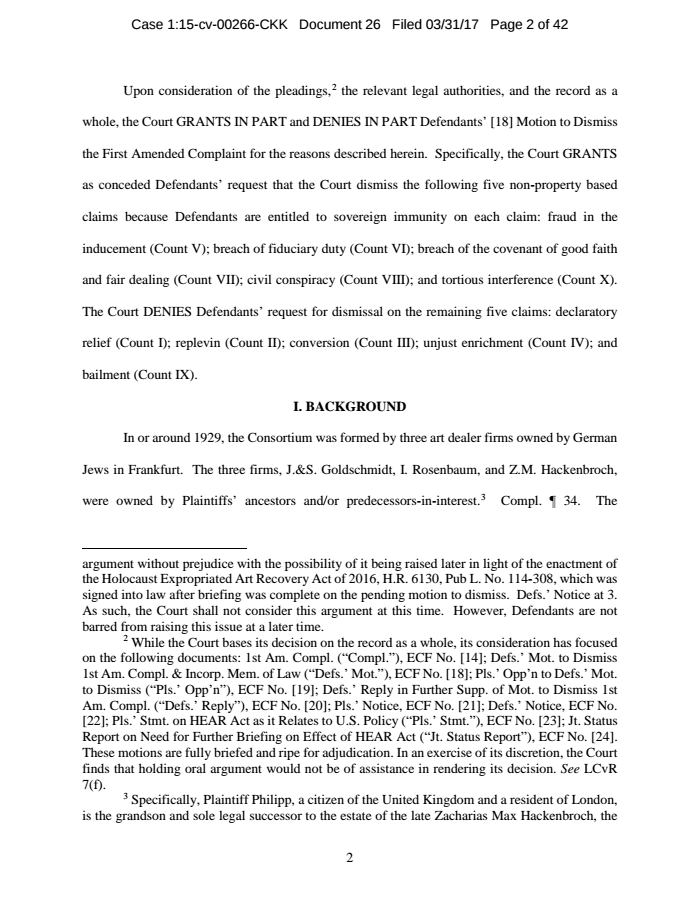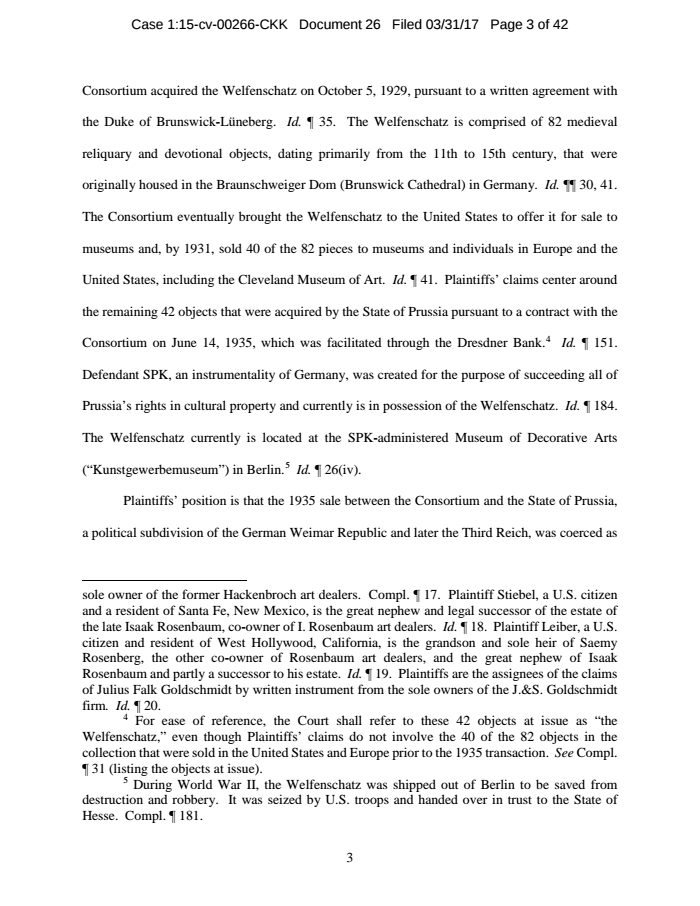
April 6 (UPI) — The Jewish heirs to a collection of medieval artifacts known as the Guelph Treasure who said their ancestors were forced to sell the pieces to the Nazis will be able to sue the German government in U.S. court, a judge ruled.
It marks the first time the German government will have to defend itself in the United States in a case of Nazi art seizures.
The Guelph Treasure, which dates as far back as the 11th century, includes 82 items valued at a combined $276 million. The collection was bought by a group of four Jewish art dealers in Germany in 1929, with the intent to flip the collection for a profit. With the onset of the Great Depression, the group was forced to hold onto about half of the collection.
In 1935, the owners sold the remaining works to the state of Prussia, at that point under Nazi control and ruled by Adolf Hitler‘s second-in-command, Hermann Goering. They took a 10 percent loss on the transaction, proof, their ancestors said, that the sale was under duress. Goring later presented the Guelph Treasure to Hitler as a gift.
After the fall of Nazi Germany, the German government remained in control of the artifacts, which are now on display at the Bode Museum in Berlin.
“We are pleased that the court agreed that a forced sale for an inadequate sum to agents of Hermann Goering enjoys no immunity from justice,” said Nicholas O’Donnell in a statement on behalf of the plaintiffs. “The facts show beyond all doubt that the 1935 ‘sale’ was nothing more than a sham transaction that was part of the regime of institutional oppression of our clients’ ancestors by Nazis at the very highest level.”
A judge in U.S. District Court for the District of Columbia rejected arguments by German government lawyers that they were immune from foreign legal action under the Foreign Sovereign Immunities Act.









